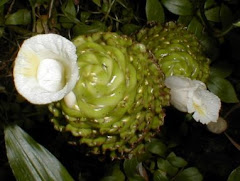
PRE-CLINICAL DATA
Pharmacology
Pharmacology and Human Studies:
Burns
Pharmacology
Pharmacology and Human Studies:
Burns
Aloe gel, made from the central part of the Aloe leaf, is a common household remedy for minor cuts and burns as well as sunburns. It can be found in many commercial skin lotions and cosmetics. Aloe contains active compounds that stop pain and inflammation and stimulate skin growth and repair. For this reason, Aloe vera gel has gained tremendous popularity for relief of burns, with individual success in helping minor burns.
Herpes and Skin Conditions
Preliminary evidence also suggests that aloe gel may improve symptoms of genital herpes and certain skin conditions such as psoriasis.
Limited evidence from human studies suggests that 0.5% extract from Aloe vera in a hydrophilic cream may be an effective treatment of genital herpes in men (better than aloe gel or placebo).
Limited evidence from human studies suggests that 0.5% extract from Aloe vera in a hydrophilic cream may be an effective treatment of genital herpes in men (better than aloe gel or placebo).
Psoriasis vulgaris
Evidence from one human trial suggests that 0.5% extract from Aloe in a hydrophilic cream is an effective treatment of psoriasis vulgaris (6). However, the effect of a commercial Aloe vera gel on stable plaque psoriasis was modest and not better than placebo on a double-blind, placebo-controlled study done by Paulsen et al. 2005 .
Constipation
Aloe vera gel is often confused with another part of the Aloe plant known as aloe juice, but the two substances are quite different. Aloe juice (also known as aloe latex or aloe sap) is a yellow, bitter liquid derived from the outer layer of the Aloe leaf. It contains substances that, when taken by mouth, have very strong laxative effects. For example, in a study of 35 men and women with constipation, those who received capsules containing aloe latex, and other laxatives including psyllium (a natural substance high in fiber) experienced softer and more frequent stools compared to those who received placebo.
Dried latex from the inner lining of aloe leaves has been used traditionally as a laxative taken by mouth. Although few studies have been conducted to assess this effect of A.vera in humans, the laxative properties of aloe components such as aloin are well supported by scientific evidence.
Diabetes
Preliminary studies suggest that aloe juice may help lower blood sugar levels in people with type 2 diabetes. It seems possible that the herb may prove to be a useful addition to the diet, exercise, and medication program for type 2 diabetics.
Laboratory studies show that Aloe can stimulate insulin release from the pancreas and can lower blood glucose levels in mice. Results from two poorly conducted human trials suggest that oral aloe gel may be effective in lowering blood glucose levels, although a third, smaller study found no effect. More research is needed to explore the effectiveness and safety of aloe in diabetics (1).
Aloe vera gel and phytosterols derived from Aloe vera gel are suggested to have a long-term blood glucose level control effect and would be useful for the treatment of type 2 diabetes mellitus.
HIV infection
Acemannan, a component of aloe gel, has been shown in laboratory tests to have immune-stimulating and anti-viral activities. Results from early human studies are mixed, and due to weaknesses in the way these studies were designed, firm conclusions are not possible. Without further human trials, the evidence cannot be considered convincing either in favor or against this use of Aloe .
Cancer prevention
Aloe-emodin (AE), a hydroxyanthraquinone present in Aloe vera leaves, has a specific in vitro and in vivo antineuroectodermal tumor activity .
Canker sores (aphthous stomatitis)
There is weak evidence from one study that treatment of recurrent aphthous ulcers of the mouth with aloe gel may reduce pain and increase the amount of time between the appearances of new ulcers.
Ulcerative colitis
There is limited but promising research of the use of oral Aloe vera in ulcerative colitis, compared to placebo. It is not clear how Aloe vera compares to other treatments used for ulcerative colitis
Wound healing
Effects of Aloe on wound healing are mixed. Some studies reported positive results while others showed no benefit or potential worsening of the condition.
Mucositis
There is preliminary evidence from a human trial that oral Aloe vera does not prevent or improve mucositis (mouth sores) associated with radiation therapy.
Pressure ulcers
No benefit was found on topical acemannan hydrogel (a component of aloe gel) in the treatment of pressure ulcers.
Radiation dermatitis
Reports in the 1930s of topical aloe's beneficial effects on skin after radiation exposure lead to widespread use in skin products. Currently, aloe gel is sometimes recommended for radiation-induced dermatitis, although scientific evidence suggests a lack of benefit in this area .
Antioxidant activity
The Aloe vera extract showed significant antioxidant activity which is significantly higher than that of BHT and alpha-tocopherol .































































No comments:
Post a Comment